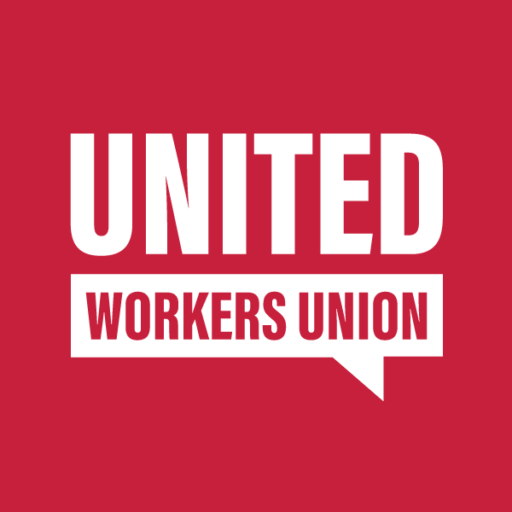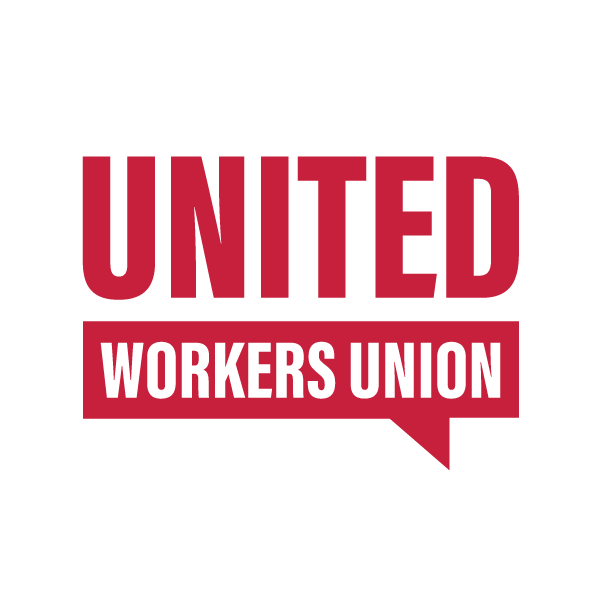5 steps you can take to get an EBA
You’ve been chatting to your colleagues, and you all want change. Maybe you want to be paid more fairly for your work? Or perhaps you’re sick of being squashed into the tiny, windowless break room each lunchtime.
Whatever your issue, it’s difficult to affect change as an individual.
But as a collective, that’s a different story. Together, you might be able to negotiate an enterprise bargaining agreement with your employer, so everyone gets the workplace they want.
So, what is an enterprise bargaining agreement and how can you get one? Here we explain.
What is an EBA?
To put it simply, enterprise bargaining is the negotiation between unions, employers and employees to change conditions in a workplace. The agreement that is struck is an enterprise bargaining agreement (EBA).
According to United Workers Union organiser Aaron Behmer, to understand an EBA, you need to know what the pay and conditions were like in the first place. Most people who aren’t under an EBA are covered under an award.
“An award is the absolute minimum and basic rights provided to workers by the government…. There’s no real say for workers in it. There are very low and poor conditions provided to workers on an award basis,” he explained.
However, an enterprise agreement gives workers the ability to have a say in their wages and their conditions at their worksite.
“What that looks like in a basic form is higher pay increases, general conditions including better sick leave, higher superannuation, and union rights… Workers being able to have a democratic say over their wages and conditions,” Aaron said.
An enterprise agreement will last from one to four years and the next one will be renegotiated before the last one expires.
What are the advantages of an EBA?
One of the main advantages of an enterprise agreement is earning more money. Whether it’s extra wages, higher superannuation or better leave conditions, being financially better off is obviously a big incentive.
Having an enterprise agreement in your workplace isn’t just about money.
According to Aaron, many people who have fought for an EBA say the biggest benefit is having ownership and say over the way they work.
“We’re not robots, we’re not monkeys. We’re human beings. By having some control, it’s really liberating to have an avenue to say ‘no, I don’t agree with that. I want to change that’,” he said.
There are advantages for employers too.
“When you give people ownership over their working conditions, they’re more likely to stick around. They invest in the place and feel connected to the workplace. You get a much happier, more invested workforce,” Aaron explained.
So, what are the steps to getting an EBA?
Step 1: Join the union
If you and your colleagues want to make change, the first step is to get as many as possible to join your union. It’s almost impossible to get an enterprise agreement without being in your union because of the legal complexities and the expertise a union brings.
In a union like UWU, we have industrial officers, lawyers, organisers, and a LOT of members (150,000+). It means you’re more powerful when bargaining for a new EBA as the scales are tipped in your favour.
You need as many people as possible in your workplace to be a member of the union. 60% is an ideal number but it should be above 50%.
Step 2: Work out what you want to change
Your next step is to have some discussions with your colleagues about what you want to change in your workplace.
Maybe it’s higher wages? Maybe it’s more breaks during the day? Maybe you want an extra lunchroom?
You need to have a good idea about the widely felt issues on your worksite.
Step 3: Set up a majority support petition
The Fair Work Commission requires a majority support petition before you’re allowed to bargain. You need to make sure most of your colleagues want to fight for higher wages and conditions.
If over 50% of your worksite signs on, then you have the legal rights to bargain with your employer.
Step 4: Be proactive and engage with the process
Now your workplace has communicated what they want, your union will start the negotiation process. But it’s not time to put your feet up and let them take over. There are many ways you can stay involved.
You could attend the union meetings and speak up about how you feel. You could become a delegate and take your seat at the bargaining table.
You could continue to get more members in the group and survey them about what they want to keep or drop from the claims.
Step 5: Vote for your new agreement
During the negotiations, your employer could put a new agreement out for a vote. All workers who are covered by the new agreement can take part in the vote, although they don’t have to.
If the majority votes no, the negotiating continues.
If you feel your conditions are met, vote yes. If there is a majority, the enterprise agreement will be lodged with the Fair Work Commission.
Do you want to make changes at your work? Join us at the United Workers Union to find out to negotiate an enterprise agreement at your workplace.

